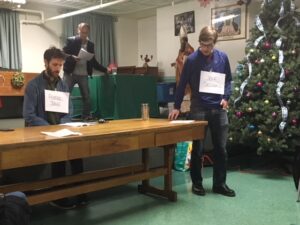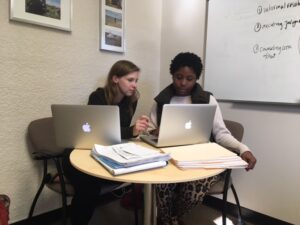What’s an important aspect of our legal system that law students typically don’t learn about? Here’s one: the fact that vast numbers of Americans deal with their civil legal problems without help from lawyers. In landlord-tenant matters, in family court, in consumer and benefits cases, and in many other critical situations, Americans now mostly go it alone.
This reality contrasts sharply with the world of the law school casebook, in which no one, it seems, goes through a legal process without a knowledgeable attorney at their side. For many reasons — including high fees, the shortage of legal aid and pro bono help, the increasing complexity of laws and procedures, and more – that’s just not how our system actually works these days.
Enter the civil “access to justice” movement, which seeks to ensure that America’s justice systems work for everyone – not just those with high incomes. And enter the Sheller Center’s Access to Justice Clinic, launched this fall. In this clinic, six students are engaging in hands-on projects addressing access-to-justice problems in Philly. One project concerns the difficulty that unrepresented Philadelphians have in getting even a simple divorce. Another involves the high number of default judgments in landlord-tenant court, which result in evictions without the court ever hearing the (typically unrepresented) tenant’s side of the story.
It’s too early to say where the students’ work will lead, but the Clinic is off to a good start. The new clinic is just our most recent attempt, by the way, to engage students in improving access to justice in Pennsylvania (see our work on fair treatment for non-native speakers of English in court proceedings for another example). We hope you’ll check back as the year progresses to learn more about our Access to Justice Clinic and other projects.


